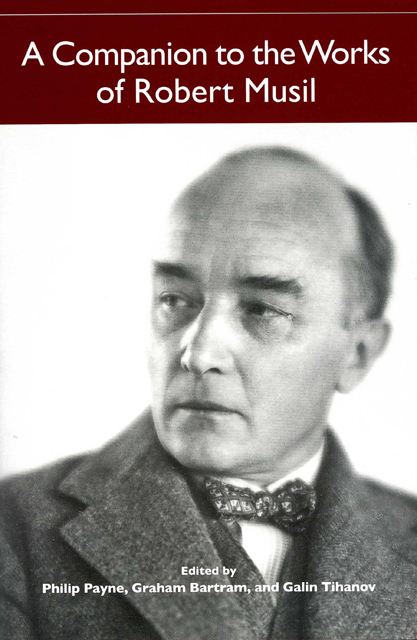Book contents
- Frontmatter
- Dedication
- Contents
- Preface
- Acknowledgments
- List of Abbreviations
- Musil's Principal Works
- Miscellaneous Frontmatter
- Introduction The Symbiosis of Robert Musil's Life and Works
- Musil's Life: Experiences, Reflections, Emotions of an Intellectual
- Literary Works before Der Mann ohne Eigenschaften
- Perspectives on Der Mann ohne Eigenschaften
- Select Bibliography
- Robert Musil's Life: A Chronology
- Notes on the Contributors
- Index
Introduction - The Symbiosis of Robert Musil's Life and Works
Published online by Cambridge University Press: 15 March 2023
- Frontmatter
- Dedication
- Contents
- Preface
- Acknowledgments
- List of Abbreviations
- Musil's Principal Works
- Miscellaneous Frontmatter
- Introduction The Symbiosis of Robert Musil's Life and Works
- Musil's Life: Experiences, Reflections, Emotions of an Intellectual
- Literary Works before Der Mann ohne Eigenschaften
- Perspectives on Der Mann ohne Eigenschaften
- Select Bibliography
- Robert Musil's Life: A Chronology
- Notes on the Contributors
- Index
Summary
Robert Musil's Published and Unpublished Work: An Overview
Robert Musil Stands Out among other prominent writers of the twentieth century for the subtlety of his perception of modern life, for his ability to perceive connections between seemingly disparate aspects of culture, for his creative imagination, his formidable intellect, and for the clarity and brilliance of his prose. He is considered, with Franz Kafka and Thomas Mann, one of the foremost novelists writing in German in the twentieth century. His work is stylistically and intellectually challenging, his major work immensely long and incomplete, and for these reasons has never attained the popularity of the other great German writers of the period. Musil is thus an “acquired taste,” but those who delve into his works are rewarded with an incomparable literary analysis of the sociological and philosophical currents of the time just before the outbreak of the First World War and beyond.
Musil was born in Klagenfurt, Austria, in 1880 and died in Geneva in 1942. We have access to his writing over a span in excess of forty years, from before the turn of the twentieth century until the last day of his life: tens of thousands of manuscript pages have survived. But given Musil's commitment to releasing only work of the highest quality, the quantity of writing that was actually published during his lifetime is much less extensive than the extant manuscript material, and even this represents only part of his output since some was destroyed in a repository toward the end of the Second World War.
- Type
- Chapter
- Information
- A Companion to the Works of Robert Musil , pp. 1 - 50Publisher: Boydell & BrewerPrint publication year: 2010
- 1
- Cited by



